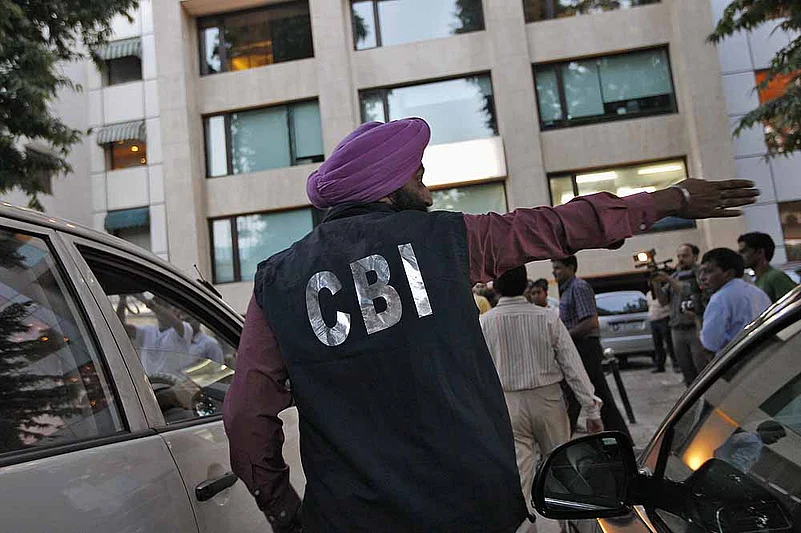Not In The Book
- Central Bureau of Investigation (1946) Set up by the Delhi Special Police Establishment Act
- Intelligence Bureau (1947) Under MHA, no constitutional/statutory status Planning Commission of India (1950) Set up by a resolution of GoI
- National Law Commission (1955) Under the ministry of law and justice. First Law Commission was formed in 1955.
- Central Water Commission Apex organisation came into existence as ‘Central Water and Power Commission’ in 1951. CWC was separated in 1974
- National Human Rights Commission The ‘quasi-judicial’ body was set up under Protection of Human Rights Act, 1993
- National Advisory Council (2004) An advisory body chaired by the UPA chairperson for the PM of India
- National Knowledge Commission (2005) Advisory body to the PM of India
***
The Central Bureau of Investigation, in the last few years, has earned many epithets, most of them a bit unfavourable. The words “parrot”, “pet” and “scourge” have all been bandied about but perhaps the unkindest cut has been the latest one. A recent judgement of the Guwahati HC ruled that the CBI was a non-constitutional body. The Supreme Court has passed a stay order on the ruling, but it’s sparked off a debate on the question of key bodies lacking a clear constitutional status.
The list of entities in the non-constitutional club along with the CBI is pretty disconcerting: the Planning Commission, the National River Linking Project, the IB, the Knowledge Commission, the National Development Council, the National Advisory Council, the Law Commission, the NHRC and the UIDAI. So what are the real concerns if these entities do not enjoy constitutional sanction? And will their becoming constitutional answer the worries regarding control and functioning? “Why not?” asks CPI(M) leader and MP Basudeb Acharia. “The accountability of any such body is very important; accountability to the people, to Parliament. If we really need such bodies, then why hesitate in bringing them to the House for debate and giving them a proper structure in the form of an act? This will help them be both effective and accountable,” he says.
However, they are many who differ on this premise. Senior advocate Prashant Bhushan told Outlook, “The concern is more about independence and accountability. Functional freedom and financial independence are big concerns. Consider the Central Vigilance Commission—though a constitutional body, it is dependent on the Central Vigilance Office for financial requirements. A third concern is independence in terms of appointments. Also, in agencies like IB there’s no accountability vis-a-vis secret funds which runs into crores. Even the CIA is accountable to the US senate.”
Retired judge Rajinder Sachar says it’s wrong to put all non-constitutional bodies in the same queue. “The roles are different. Comparing the Knowledge Commission with the CBI is wrong. One is a body for recommendations while the latter is a police agency which prosecutes cases of crime and corruption.”
Meanwhile, the Opposition has “larger questions” to raise. Senior lawyer and BJP leader Ravi Shankar Prasad says, “The foundations of such bodies are not important; but their freedom, functioning in a non-partisan and fair manner is. A case in point: the CBI gives a clean chit to the UP government that in turn supports the central government on crucial issues in the House. Now one has to seriously look into the way CBI represented the case.”
Justice Sachar even questions the “legality of the Planning Commission”. “After the 73rd and 74th Amendment, the right to plan has gone to district-level planning committees. Then it goes to the state planning bodies. What’s the role and requirement of the Planning Commission at the Centre then? Even if something is planned at the Centre, the money stalls with the state instead of going to the districts where it is required. This whole plan is upside down,” he says. The judge also has some comments on the SC’s flexible stance towards the CBI, which is “unlike its previous position”. “The SC was clear that consent of the state is a must for the CBI before intervening in law and order matters under state jurisdiction. In the past few years, the position has been diluted by saying that in exceptional cases, it (CBI) may do so.”
Questions relating to legitimacy, financial support and validity of ‘extra-constitutional bodies’ like the National Advisory Council have been raised in the past too. The NAC, an advisory body for the PM, which is chaired by upa chairperson and Congress president Sonia Gandhi, had a key role in the rollout of achievements like the NREGA, Forest Rights Act and RTI in UPA-I.
So what is the way out? “Fix responsibility, accountability and ensure transparency. Don’t forget to ensure the agency’s independence in terms of appointments, financial freedom and functioning. Ironically, no one’s concerned about all this in the existing political system,” sums up Prashant Bhushan.


























